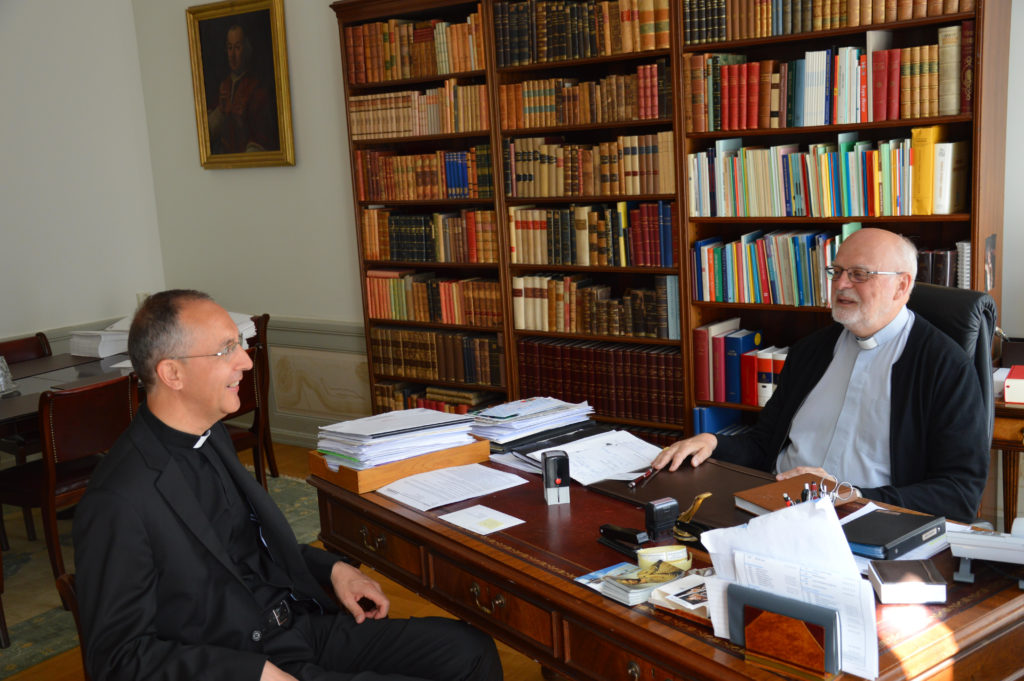During his recent visit to ad LiminaWhat interested the Pope about the Church in his country?
As you know, for some time now the Holy Father has been very interested in the situation of refugees. Sweden has been a country very open to refugees, as have the other Nordic countries, so that was a first topic he was interested in. hope Secondly, of course, we also talked about ecumenical dialogue. The Pope came explicitly to Sweden in October-November 2016 for the V centenary of the Protestant Reformation, with the intention of intensifying the dialogue with the Lutherans.
And as a third theme, the Pope was interested in learning about the reality of a Church like the one here, which is a small community in the midst of a secularized world and therefore finds itself in a very peculiar situation. At the same time, it is one of the few particular Churches in Europe where the number of Catholics is increasing, especially thanks to immigration. In this sense, our reality as a periphery of the Church is unique, and this of the peripheries is a preferential theme of the Holy Father.
It has been one year since his creation as a cardinal in June 2017: he is the first Swedish cardinal in history, and in 1998 he had been the first Swedish bishop since the times of the Reformation. What is your assessment after this first year?
The appointment as a cardinal was a great surprise for me. At the same time I was very happy to see the Holy Father's interest in our situation here in Sweden. I was also surprised that my creation as a cardinal aroused so much interest in the media and in public opinion. In that sense, it was an important moment for the Catholic Church in Sweden.
In recent years we have had several opportunities to experience the Pope's interest. First there was the canonization of saint Mary Elizabeth HesselbladThe visit of Pope Francis to the Swedish city of Lund for the beginning of the commemoration of the reformation, followed by his appointment as a cardinal, was followed by his visit to the Swedish city of Lund on June 5, 2016.
And how has public opinion reacted?
In the public opinion of our country there is a great interest in the hope of the Catholic Church, and even sympathy, although logically there are also opposing voices.
As for the authorities, there is some distance. Many people have asked me if I received congratulations from the king or the prime minister on my appointment as cardinal, but because of that distance there have been no official reactions yet. Instead, it was well received by the media and among ordinary people. It can be said that the Pope's decision has made the Catholic Church a little more present in the public space in Sweden.







